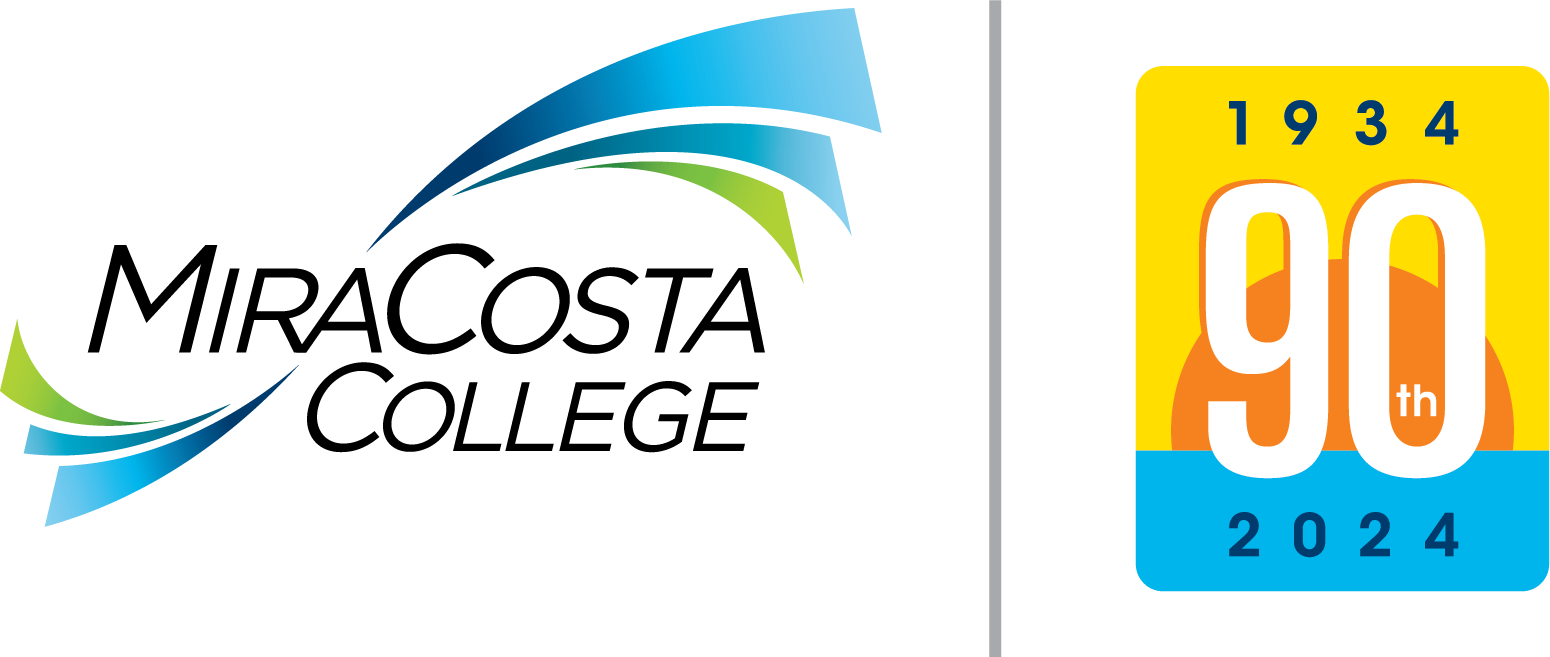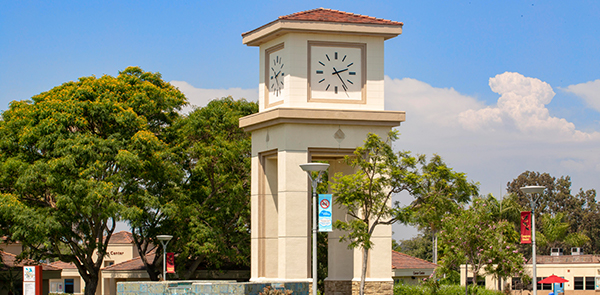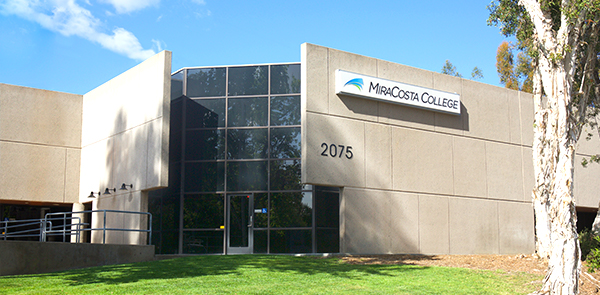Residency Categories
Applicants for admission are divided into the following categories:
- A student who has resided in the state for more than one year immediately preceding the residence determination date is a resident. *
- A student who has not resided in the state for more than one year immediately preceding the residence determination date is a nonresident.
*Additional documentation may be required for proof of residency.
California Residency Requirements
Under California State Education Code regulations that govern the California Community Colleges, classification as a California resident requires that a person be physically present in this state for two years prior to the beginning of the term for which they are applying. One year of physical presence may be acceptable if documentation of intent to reside can be provided.
Residency classifications shall be determined for each student at the time of each registration and whenever a student has not been in attendance for more than two regular semesters (fall/spring). Residence classifications are to be made in accordance with the following provisions:
- A residence-determination date is that day immediately preceding the opening day of instruction for any session during which the student proposes to attend.
- Residence classification is the responsibility of the Admissions and Records Office.
Students must be notified of residence determination within 14 calendar days of submission of application.
A student seeking to enroll exclusively in career development and college preparation courses, and other courses for which no credit is given, shall not be subject to this residency classification requirement.
Exceptions to the residency requirements include, but are not limited to the following:
- Active Military personnel stationed in California*
- Dependents of active-duty military personnel stationed in California *
- Certain minors who remained in California when their parents moved *
- Self-supporting minors *
- Full-time employees of the college or a state agency, or a child or spouse of the full-time employee *
*Additional documentation is required - email admissions@miracosta.edu for more information
Establishing California Residency
To establish California residency for tuition purposes, you must:
- Be eligible to be a California resident
- Have one year’s physical residence in the state of California
- Show evidence of intent to reside in California.
- Students who are between the ages of 18-24 years old and have moved to California must be able to demonstrate evidence of financial independence from a parent who lives out of state.
California Residency Requirement Criteria
Eligibility
The following citizenship/immigration statuses ALLOW a student to establish residency if the student also meets the criteria regarding physical presence and intent to make California home for other than temporary purposes.
- U.S. Citizens
- Permanent Residents, including conditional permanent residents, and applicants for permanent resident status or to adjust status (Form I-485)
- Applicants for legalization pursuant to Immigration Reform and Control Act (IRCA)
- Asylees and asylum applicants
- Refugee applicants [Note: A refugee may be entitled to an immediate exemption from the nonresident tuition fee if upon entry to the United States, the refugee first settled in California pursuant to the provisions of Education Code section 68075.6 (effective January 1, 2018). This exemption is only for the length of time he or she lives in this state up to the minimum time necessary to become a resident (one year and one day).]
- Applicants for “withholding of removal” (formerly called ”withholding of deportation”) under the Immigration and Nationality Act (INA 241(b)(3)) or under the Convention Against Torture (“CAT”). CAT protections relate to the obligations of the United States under Article 3 of the United Nations Convention Against Torture.
- Applicants for the Family Unity Program, LIFE Act (LIFE Legalization), and LIFE Act Family Unity Provisions.
- Applicants for Temporary Protected Status
- Applicants for VAWA Self-Petition - Battered spouse or child of U.S. citizens or lawful permanent residents with pending or approved self-petition (Form I- 360). Authorized under the immigration provisions of the Violence Against Women Act (VAWA) passed by Congress in 1994.
- Persons from Guam or Puerto Rico (Trust Territories), the Federated States of Micronesia, Palau, Kofrae, Ponape, Truk, Yap, Marshall Islands, American Samoa, and Tonga do not have visas, but are eligible to establish residence, unless they have applied for an F-1 (Student visa), which would preclude establishing domicile in the United States.
- Under the “Jay Treaty,” American Indians born in Canada have the right to pass and re-pass into the United States. They are subject to regulations of the United States Immigration and Naturalization Service. Only Indians who possess at least one-half degree of American Indian blood can take advantage of the border crossing provision of the Treaty. (Canada does not recognize this Treaty and considers American Indians to be subject to the provisions of their Immigration Act.).
- Students granted the “Deferred Action for Childhood Arrivals” (DACA) status.
- Noncitizens admitted to the United States on an immigrant visa status would be considered eligible to establish residence even if a particular visa number is not listed below.
The following visa statuses MAY establish Residency:
- A-1, A-2, A-3, E-1, E-2C, E-3, G-1, G-2, G-3, G-4, G-5, H-1B, H-1C, H-4*, I, K1, K-2, K-3, K-4, L-1A, L1B, L-2, O-1, N-8, N-9, NATO 1-7, O-1, O-3, R-1, R-2, R-3, SIV, T-1 to T-6, U-1 to U-5, V-1, V-2, V-3 (Documentation required) * H-4 visa holders: Please also provide a copy of H1 or H1-B visa from whom you derive your H-4 visa.
Residency Determination Date
“Residence Determination Date” is that day immediately preceding the opening day of instruction of the semester, or other session as set by the district governing board, during which the student proposes to attend a college. Enrollments in late starting classes within a term or session are subject to this uniform residence determination date (each term/session only has one residence determination date).
Physical Presence and Intent
In order to establish a residence, it is necessary that there be a union of act and intent. To establish residence, a person capable of establishing residence in California must couple his/her physical presence in California with objective evidence that the physical presence is with the intent to make California the home for other than a temporary purpose. The burden is on the student to demonstrate clearly physical presence in California, intent to establish California residence, and financial independence.
The one year residence period, which a student must meet to be classified as a resident, does not begin to run until the student is both present in California and has manifested clear intent to become a California resident.
The burden is on the student to demonstrate clearly both physical presence in California and intent to establish California residence.
Physical Presence
- A person capable of establishing residence in California must be physically present in California for one year prior to the residence determination date to be classified as a resident student.
- A temporary absence for business, education or pleasure will not result in loss of California residence if, during the absence, the person always intended to return to California and did nothing inconsistent with that intent.
- Physical presence within the state solely for educational purposes does not constitute establishing California residence regardless of length of that presence.
Intent
- Intent to make California the home, for other than a temporary purpose, may be manifest in many ways. No one factor is controlling.
- A student who is 19 years of age or older and who has maintained a home in California continuously for the last year, shall be presumed to have the intent to make California the home for other than a temporary purpose, unless the student has evidenced a contrary intent by having engaged in any of the activities listed in subdivision “F” of this section.
- A student who is under 19 years of age, shall be presumed to have the intent to make California the home for other than a temporary purpose if both the student and his/her parent have maintained a home in California continuously for the last year, unless the student has evidenced a contrary intent by having engaged in any of the activities listed in subdivision “f” of this section.
- A student who does not meet the requirements of subdivision “B” or “C” of this section shall be required to provide evidence of intent to make California the home for other than a temporary purpose, as specified in subdivision ”E” of this section.
- Objective manifestations of intent to establish California residence include, but
are not limited to:
- Ownership of residential property or continuous occupancy of rented or leased property in California.
- Registering to vote and voting in California.
- Licensing from California for professional practice.
- Active membership in California professional, religious, merchant, service organizations or social clubs.
- Presence of spouse, children, or other close relatives in the state.
- Showing California as home address on federal income tax forms.
- Payment of California state income tax as a resident.
- Maintaining California motor vehicle license plates/registration.
- Maintaining a California driver’s license or California ID.
- Maintaining permanent military address, or home of record in California while in armed forces.
- Establishing and maintaining active California bank accounts.
- Being a petitioner of divorce in California.
- Remaining in California during academic breaks.
- Registering for the Selective Service in California (indicating California address).
- Conduct inconsistent with a claim of California residence includes, but is not limited
to:
- Maintaining voter registration and voting in another state.
- Being the petitioner for a divorce in another state.
- Attending an out-of-state educational institution as a resident of that other state.
- Declaring nonresidence for state income tax purposes; paying taxes in another state or country as a resident of that state or country or not fulfilling tax obligations to the State of California.
Financial Independence
A questionnaire to determine financial independence must be submitted with the petition for reclassification. Determination of financial independence is not required for students who were classified as nonresidents by the University of California, the California State University, or another community college district. (Education Code section 68044)
A student shall be considered financially independent for purposes of residence reclassification if the applicant meets all of the following requirements:
- The student has not and will not be claimed as an exemption for state and federal tax purposes by their parent in the calendar year prior to the year the reclassification application is made;
- The student has not and will not receive more than seven-hundred fifty dollars ($750) per year in financial assistance from his/her/their parent in the calendar year the reclassification application is made and in any of the three calendar years prior to the reclassification; and
- The student has not lived and will not live for more than six weeks in the home of their parent during the calendar year the reclassification application is made.
- Relevant documentation to support a finding of financial independence may include tax returns from the student to verify the student’s income and from parents to verify the student was not included as a dependent, W-2’s, apartment rental contracts for leases, and copies of other necessary financial documentation to verify the sources of the student’s income/savings.
A student who has established financial independence may be reclassified as a resident, if the student has met the requirements of Title 5 sections 54020, 54022, and 54024, for one year prior to the residence determination date.
In determining whether the student has objectively manifested intent to establish California residence, financial independence shall weigh in favor of finding California residence and financial dependence shall weigh against finding California residence.
Failure to satisfy all of the financial independence criteria listed above does not necessarily result in denial of residence status if the one-year requirement is met and demonstration of intent is sufficiently strong.
Financial dependence in the current or preceding calendar year shall weigh more heavily against finding California residence than financial dependence in the preceding second and third calendar years. Financial dependence in the current or preceding calendar year shall be overcome only if (1) the parent on whom the student is dependent is a California resident, or (2) there is no evidence of the student's continuing residence in another state.
The Admissions and Records Office will make a determination, based on the evidence and notify the student not later than fourteen (14) days of receipt of the petition for reclassification.
Students have the right to appeal according to the procedures above.
How to Request for Reclassification
To request a reclassification, students can complete and submit a Supplemental Residency Questionnaire (SRQ) and attach supporting documentation, if needed.
Appeal Process
Right to Appeal
Students who have been classified as nonresidents have the right to a review of their classification. (Title 5 sections 54010(a), 54060)
Any student who believes their residence determination is not consistent with the guidelines may make a written appeal to the Director of Admissions and Records within 30 calendar days of notification of final decision by the college regarding classification.
Appeal Procedure
The appeal is to be submitted to the Office of Admissions and Records which will forward it to the Director of Admission and Records (or the Assistant Registrar if the Director of Admissions and Records is unavailable) within five working days of receipt. Copies of the original application for admission, the residency questionnaire, and any evidence or documentation provided by the student will be forwarded with the appeal.
The Director of Admissions and Records (or the Assistant Registrar if the Director of Admissions and Records is unavailable) shall review all of the records and have the right to request additional information from the student.
Within 30 calendar days of receipt, the Director of Admissions and Records (or the Assistant Registrar if the Director of Admissions and Records is unavailable) shall send a written determination to the student. The determination shall state the specific facts on which the appeal decision was made.
Second Appeal
If the student continues to believe that they have not been treated reasonably and fairly, they may seek final recourse through the Dean of Admissions and Student Support. A written statement of this appeal will be presented to the Dean of Admissions and Student Support for review. The determination of the second appeal by the Dean of Admissions and Student Support shall be final.
Incorrectly Classified as a California Resident
A student incorrectly classified as a California resident is subject to reclassification as a nonresident and payment of all nonresident tuition. If incorrect classification results from false or misleading facts, a student may be excluded from classes or the college upon notification.
Falsification of Residency Information
Providing false information necessary for establishment of residency classification will result in disciplinary action and may result in dismissal from MiraCosta College.
Questions?
For questions related to the residency process, please email admissions@miracosta.edu





